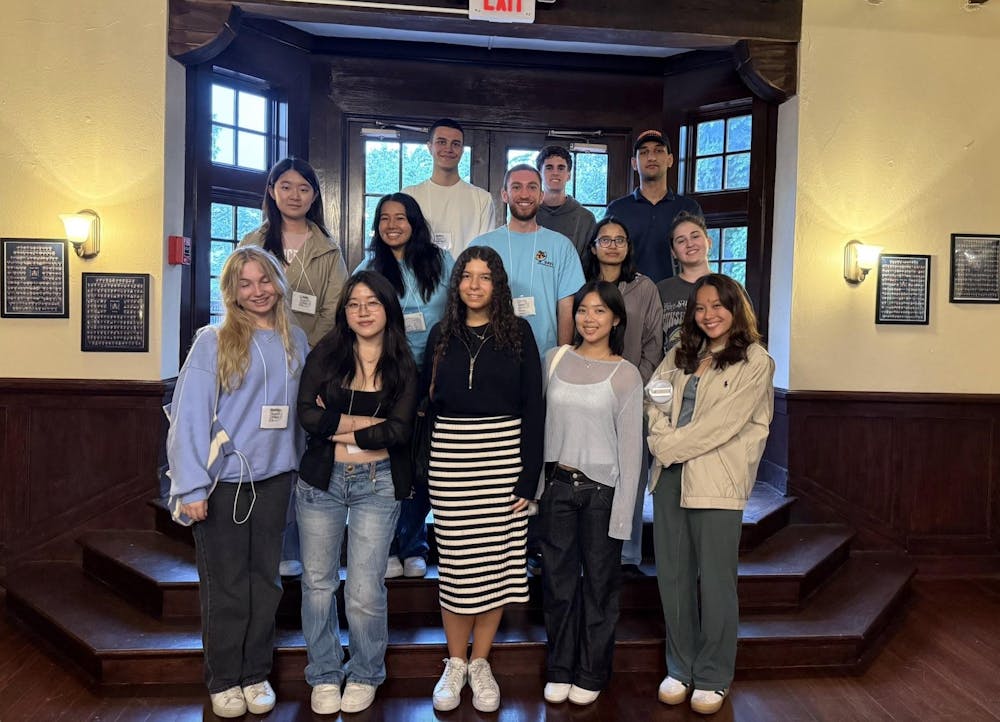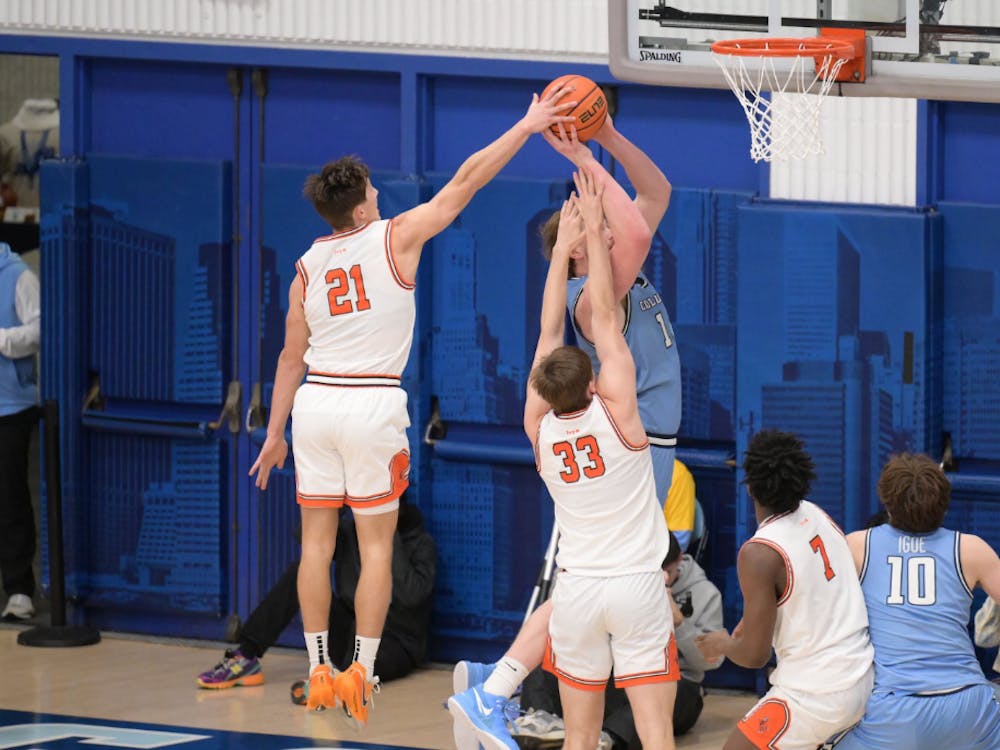For nearly two hundred incoming first-year students this year, the Princeton journey began a little early.
Davis International Center (IC) Leaders welcomed new international students to campus from Aug. 19-21 for International Orientation (IO), a program designed to build community and ease the transition to life in the U.S. IO, like other orientation programs, encourages bonding for first years, blending serious education about life in the U.S. with more whimsical activities.
From shopping sprees to dance parties, here are five features that make IO stand out.
1. A Golf Cart Welcome
As a departmental program run by the Davis IC, IO is allowed to use golf carts for their operations. Beyond their practical purposes of helping incoming students transport their suitcases around campus to their dorms, the golf carts were transformed into a welcoming spectacle at the start of the program.
During the opening dinner at Whitman Courtyard, all of the IC Leaders arrived driving golf carts, circling the tables where the first-years sat, and blasting music from speakers before joining their groups for introductions.
“The golf carts were really memorable and fancy, and [the IC Leaders’ enthusiasm] gave us lots of energy. It was so unexpected,” said Diana Antonyan ’29, a student from Yerevan, Armenia.
2. A Haul Like No Other

The next day, after a talk from the Davis IC titled “Maintaining Your F-1/J-1 Immigration Status,” covering topics such as documentation and employment as an international student, four buses shuttled students to the nearby Target on Route 1. They then had two hours to shop, mostly for dorm supplies and other necessities that were difficult to ship from home.
This was many of the international students’ first encounter with American consumer culture. “I [still] remember the first time I went to Target. I thought to myself, ‘Why do you need this much stuff?’ And I think this trip was the highlight for a lot of the students,” said IC Leader Jordan Chi ’28 of Melbourne, Australia.
3. Skits and Games at Frist
In an event titled “USA 101,” a Davis IC staff member gave a presentation about homesickness and cultural adjustment. Additionally, IC Leaders, some acting as international students and some as Americans, taught American culture via humorous skits.

One performance poked fun at how Americans say “Hi, what’s up?” to each other and then walk away without waiting for a response. Others highlighted how people confuse Georgia the country with Georgia the U.S. state and illustrated the differences between European and American customs, with an Eastern European student attempting to greet an American with a kiss, only to be met with a slap.
After the skits, the evening continued with a Kahoot quiz that included both general trivia and Princeton-specific questions, as well as a series of games.
Jami Huang ’29 from Beijing, China especially remembered the Island Game, where each group had to choose three items they would bring if stranded on a deserted island. Her group named themselves “1 For a Reason,” and chose to take a Tesla Cybertruck, a livestreaming device to broadcast themselves to the world, and a complex math equation so others would think they were geniuses worth rescuing. The team’s creativity won over the three IC Leader judges—one for creativity, one for practicality, and one for a standard they coined as the “X Factor,” whether or not the answers incorporated an unexpected or unique element.
Through these games, IC Leaders hoped to build teamwork and inclusivity among the students. “The problem with IO is that as soon as you have one person in your group who is really good at English and other people aren’t, there’s an imbalance of who is comfortable enough to speak,” Chi explained. “But the point of IO is to make people who are really uncomfortable coming into a new environment comfortable.”
4. Traditions at the Closing Dinner
Near the end of the closing dinner, IO hosted one of its traditions: the roll call of nations. Two IC Leaders served as the MCs and read through a list of all countries represented by the first-years. When a student identified — whether through nationality or personal affiliation — with a country, they stood up to be recognized by the loud applause and cheering of their peers.
“For me, it was a lot of fun because everyone was clapping for you, and you felt really important in the moment,” Antonyan said.
“It was really cute, especially for the smaller countries. [For example, seeing] two kids from Colombia standing up, smiling, and waving at each other was really heartwarming. It was the same way when I stood up for Australia [a year ago],” Chi added.
After this celebration of the global community, the IC Leaders hosted another tradition: a raffle with Princeton merch as prizes. Before the random spinning wheel landed on the name of a first-year international student, the Leaders had to “sell” their items on the spot, giving reasons as to why their prize was the best and attempting to convince the students to take their item.
5. A Party With Global Flavor
To celebrate the end of IO, international students attended a closing party at Campus Club, an opportunity for students to take a break from immersion in American culture to celebrate each other’s.
Inside, the party featured board games and music from all around the world.
“On the dance floor, there was a lot of international language. Those who knew the language were singing it, and those who didn’t know were dancing around the people who knew it. So it was a really great cultural exchange moment,” Huang noted.
Some of the songs that Chi picked included “Dragostea Din Tei” by O-Zone, a Moldovan-Romanian eurodance group, and “Ai Se Eu Te Pego” by Brazilian artist Michel Teló.
“Something that we tried to do this year was to play that targeted specific cultures to try to make them feel included. For example, when we played a Brazilian song, all of the kids from Brazil formed a mosh pit. That was something really special we did this year,” Chi noted.
Angela Li is an assistant Features editor for the ‘Prince.’
Please send any corrections to corrections[at]dailyprincetonian.com.
A previous version of this piece stated that IO was a student organization on campus. In fact, it is a departmental program run by the Davis IC. Additionally, this piece has been updated to include the clarification that “USA 101” included both skits and a talk on cultural adjustment, along with minor corrections regarding the details of other events. The ‘Prince’ regrets these errors.








